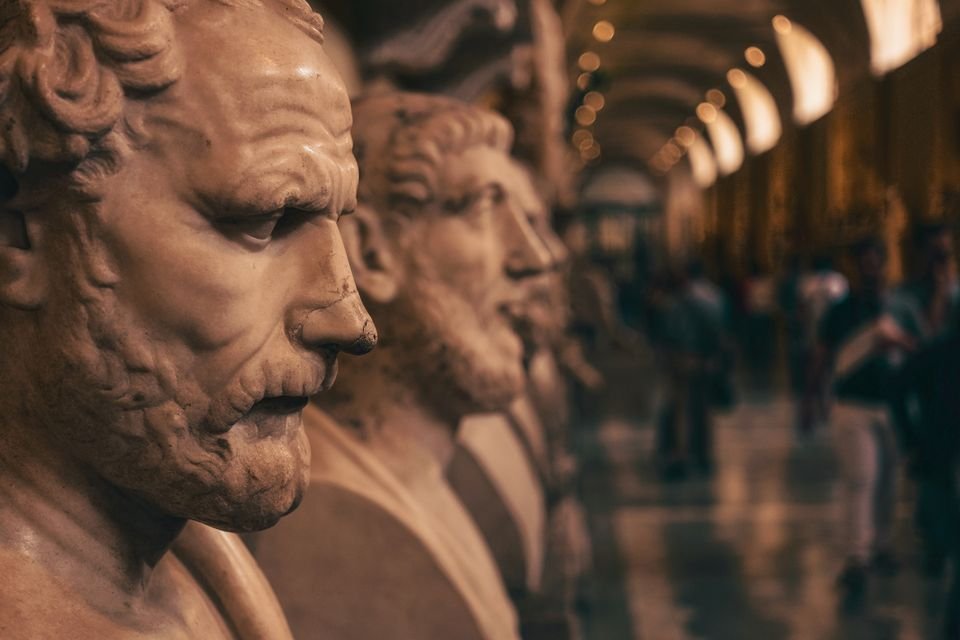Why today's digital event matters now more than ever

Written by Hannah Mcgivern and published originally by The Art Newspaper, 18 May 2020.
Today marks International Museum Day, an initiative co-ordinated by the International Council of Museums (ICOM) every 18 May since 1977. With thousands of cultural institutions closed by Covid-19 lockdowns around the world and cut off from their physical audiences, many have migrated online, launching virtual tours, webinars and social media campaigns in recognition of the day under the hashtags #IMD2020 and #Museums4Equality.
This may seem “a strange time to celebrate”, observes ICOM’s president Suay Aksoy in an open letter to museums published on the membership association’s website, “yet it is precisely now that we need to spread the message of the International Museum Day”. The annual initiative is designed to raise awareness of the activities of museums in advancing “cultural exchange, enrichment of cultures and development of mutual understanding, co-operation and peace among peoples”, according to the Paris-based organisation.
Such values are all the more urgent amid a global health crisis that “has brought prejudice against certain people, such as racism against Chinese nationals”, Aksoy tells The Art Newspaper. “I think cultural exchange will always be an important means to understand each other better and understand the world better.”
The event is also an advocacy platform for museums to alert local, regional and national governments to their social and educational missions, and this year make the case for financial aid to weather the looming recession. “Museums need to champion themselves because their survival may depend on it,” Aksoy says. Currently deprived of visitor income, they must seek emergency support both from government and the private sector to reopen and recover, she says, asking: “Can we consider our society healed after this pandemic if we have entire towns with closed museums?”
Since 1992, Icom has invited museums to reflect on a different theme each International Museum Day; the organisation’s national and international committees propose and vote on the themes every two years. The 2020 theme—Museums for Equality: Diversity and Inclusion—was chosen long before the world had heard of Covid-19, although its relevance is heightened by a crisis that “exposes inequalities more abruptly”, Aksoy says.
For the first time, the theme is affiliated with the United Nations' Sustainable Development Goals (SDGs), adopted by all member states in 2015 with a target date of 2030. The four goals embedded in this International Museum Day are: reducing inequalities of all kinds, ending discrimination against women and girls, ensuring inclusive decision-making and promoting climate action. “I think we need to get obsessive about [the SDGs],” Aksoy says, in light of the “pressing and overwhelming” issue of “not only ecological, but economic and social” sustainability.
In recent years, museums have sought to diversify their programmes and correct historical blind spots, for example by exhibiting more female artists and working with underrepresented communities on tours and conferences. Others are taking steps to “decolonise”, by actively involving source communities in the management of colonial-era collections and revising outdated, and potentially offensive, terminology. The first step to successful outreach must be “to acknowledge the inequality or marginality of a group to approach them”, Aksoy says. Museums may benefit in these efforts from the high levels of trust that the public hold in them, she thinks, as surveys show they are widely seen as more credible institutions than governments and media outlets.
More than 55,000 museums in around 150 countries participated in International Museum Day last year, according to ICOM. This time around, with real-life events converted to the digital realm, “we understand that not all museums have the means to participate”, Aksoy says. “In some cases, on top of being closed, staff may have been laid off.” Lack of internet access in developing countries may be another barrier.
Icom is, however, “confident that we will not see a big decrease in participation”, she adds, between today’s online celebration and further festivities proposed on 14-16 November, when museums are expected to be able to host IRL activities once again.
But even when the physical doors of museums reopen, Aksoy believes digital engagement will be a lasting legacy of the pandemic. In their weeks and months of closure, museums “have acquired new audiences, and we should start thinking of how we will keep them”, she says. “We have to review how we survived without opening our doors, without presenting new exhibitions or our collections as real objects… This can and will continue.”